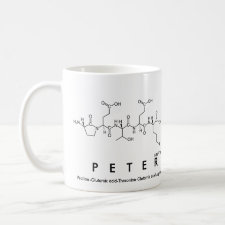
Authors: Mier A, Nestora S, Medina Rangel PX, Rossez Y, Haupt K, Tse Sum Bui B
Article Title: Cytocompatibility of Molecularly Imprinted Polymers for Deodorants: Evaluation on Human Keratinocytes and Axillary-Hosted Bacteria.
Publication date: 2019
Journal: ACS Applied Bio Materials
Volume: 2
Issue: (8)
Page numbers: 3439-3447.
DOI: 10.1021/acsabm.9b00388
Abstract: Molecularly imprinted polymers (MIPs), often dubbed "synthetic antibodies", can recognize and bind their target molecule with high affinity and selectivity, making them serious competitors with regard to biological antibodies. MIPs have gained popularity in various clinical applications and have even been applied in vivo. However, only a few studies on the biocompatibility of MIPs have been reported. Herein, we investigate on an example of a MIP that has proved its efficacy as an active agent to suppress body odors in cosmetic formulations, its effect on the viability and irritation potential of human epithelial cells. Since body odors are caused by bacteria present on the skin, bactericides are regularly added to deodorants sold on the market. However, there is growing anxiety concerning these bactericides as they can generate resistant bacteria, a problem for human and animal health. Therefore, we also assessed whether the MIP perturbs the resident skin bacteria, which were isolated from human sweat. Our results show that MIPs do not affect bacterial growth when cultured in liquid media, suggesting that they will not affect the skin flora, which protects the body from dangerous pathogens. This thorough in vitro toxicological assessment shows the biocompatibility of MIPs and constitutes a step further in their future consideration within cosmetic or pharmaceutical formulations for skin applications
Template and target information: Nα-hexanoyl glutamic acid
Author keywords: biocompatibility, cytokine, Cytotoxicity, molecularly imprinted polymer, skin bacteria



Join the Society for Molecular Imprinting

New items RSS feed
Sign-up for e-mail updates:
Choose between receiving an occasional newsletter or more frequent e-mail alerts.
Click here to go to the sign-up page.
Is your name elemental or peptidic? Enter your name and find out by clicking either of the buttons below!
Other products you may like:
 MIPdatabase
MIPdatabase









